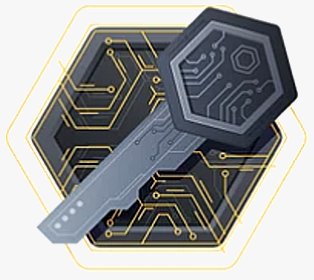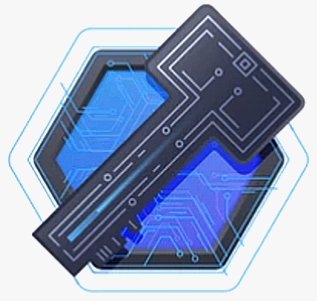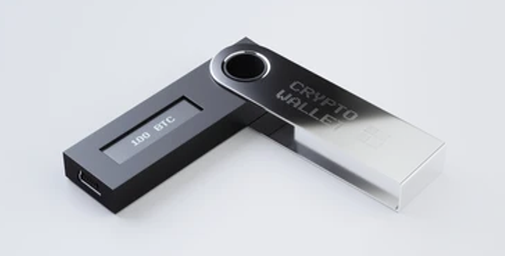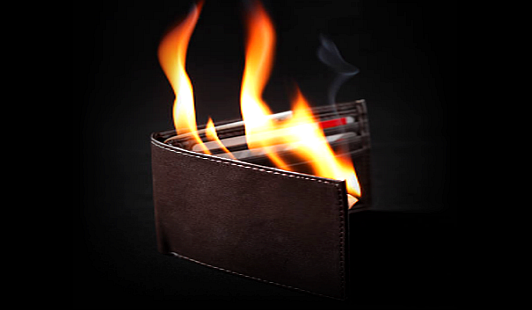Accredited InvestorsAltcoinAnatoli UnitskyAnti-Money Laundering (AML) In CryptoAPIArbitrageArtCoin TokenArticle DirectoryASICAuction Terminology GlossaryBasics of Stock Market InvestingBear MarketBest Crypto Payment Provider In the WorldBitcoinBlockchainBlockchain ConfirmationBlockchain Consensus MechanismBlockchain ForkBlockchain GlossaryBored Ape Yacht ClubBuild a Business That OutperformsBull MarketBuying SkyWay SharesByzantine Fault Tolerance (BFT) ExplainedCasascius CoinCentral Bank Digital Currency (CBDC)Centralized Crypto ExchangeCoinCoinsetCold WalletCollateralCommodity Futures Trading Commission (CFTC)Cross-Chain TechnologyCRUCrypto ExchangeCrypto GlossaryCrypto JokesCrypto Terms to KnowCrypto TickerCryptocurrencyCryptographyCryptojackingCryptounit BlockchainCryptounit GlossaryCryptounit ProgramdApp (Decentralized Application)Dead CoinDecentralized Exchange (DEX)Decentralized Finance (DeFi)Difference Between Bitcoin and EthereumDifferent Ways of Investing MoneyDigital CurrencyDistributed LedgerDo Your Own Research (DYOR)Dollar Cost Averaging (DCA)Dow Jones Industrial Average (DJIA)EncryptionERC-20ERC-721EthereumEvoScentFear Of Missing Out (FOMO)Fear, Uncertainty and Doubt (FUD)Fiat MoneyFNT Fintech CompanyGenesis BlockGlobal Unit PayGlossary of Banking TermsGlossary of Business TermsGlossary of Financial TermsHalvingHODLHot WalletHow Do I Start InvestingHow Rich is Satoshi Nakamoto?How to Create a BlockchainHow to Find Private InvestorsHow to Get Into FintechHow to Program Smart ContractsI Am Thrilled to Be a Part of This Global ProjectInitial Coin Offering (ICO)Initial Public Offering (IPO)Initial Token Offering (ITO)Innovation Basalt TechnologyInnovative Transportation TechnologiesInternational Bank Account Number (IBAN)Investing in Gold Mining StocksInvesting in Gold MiningJagerJoy of Missing Out (JOMO)Know Your Customer (KYC)LedgerLiquidity in CryptocurrencyMaker and Taker Fees in Crypto TradingMarket Capitalization (Market Cap)Meme CoinMetal Credit CardMetaMaskMillenials Now Have Access to Generational WealthMy Best Investment EverNew Digital EvolutionNFT GlossaryOff-Chain TransactionsOn-Chain TransactionsOpen Edition NFTPeer-to-Peer (P2P)Personal Loan GlossaryProbably the Best STO on the MarketProof of Stake (PoS)Real Estate Glossary of TermsReal Estate Investing GlossaryRebase TokenSecurities and Exchange Commission (SEC)Security Token ExchangesSecurity Token Offering (STO)Soulbound Decentralized Identities for Security TokensSoulbound ID Launch by Stobox Proves a SuccessSoulbound TokensStoboxStock Market GlossaryTestimonialsTether Platform and Token (USDT)UnitEx ExchangeUnitsky String TechnologiesUNTBUSDUValidatorWe Started Investing When We Were 25What are Blue Chip NFT?What are Blue Chip Stocks?What are Crypto Assets?What are Crypto Smart Contracts?What are CryptoPunks NFT?What are Digital Assets?What are Digital Collectibles?What are Gas Fees?What are Gas Wars?What are Hashmasks?What are Non Fungible Tokens?What are Non-Sufficient Funds (NSF)?What are Soulbound Tokens (SBT)?What are Stablecoins in Crypto?What are Transactions Per Second (TPS)?What are Utility NFTs?What are Utility Tokens?What Does Burning Crypto Mean?What Does Diamond Hands Mean?What Does Paper Hands Mean?What Does To The Moon Mean?What Does WAGMI Mean?What Happened to Satoshi Nakamoto?What is a 51% Attack?What is a Baby Boomer?What is a Backlink?What is a Banner?What is a Barcode?What is a Bid-Ask Spread in Crypto?What is a Block in Blockchain?What is a Block Reward?What is a Blockchain Address?What is a Blockchain Node?What is a Blockchain Oracle?What is a Blog?What is a Bond?What is a Bot?What is a Broker?What is a Business Accelerator?What is a Cash Cow?What is a Commercial Bank?What is a Commodity?What is a Con?What is a Credit?What is a Credit Limit?What is a Credit Rating?What is a Crypto Airdrop?What is a Crypto Bridge?What is a Crypto Scam?What is a Crypto Token?What is a Crypto Wallet?What is a Crypto Whale?What is a Crypto Winter?What is a Cryptocurrency Public Ledger?What is a Cryptocurrency Roadmap?What is a DAO?What is a Dark Pool?What is a Day Trader?What is a Dead Cat Bounce?What is a Default?What is a Derivative?What is a Digital Credit Card?What is a Fiscal Quarter?What is a Fungible Token?What is a Governance Token?What is a Grace Period?What is a Hard Fork?What is a Hot Wallet?What is a Hybrid Blockchain?What is a Hybrid PoW/PoS?What is a Joint Account?What is a Market Cap?What is a Merkle Tree in Blockchain?What is a Mining Farm?What is a Nonce? What is a PFP NFT?What is a POS System?What is a Prepaid Card?What is a Private Blockchain?What is a Private Key?What is a Public Blockchain?What is a Public Key?What is a Reserve Currency?What is a Ring Signature?What is a Routing Number?What is a Rug Pull in Crypto?What is a Safe Deposit Box?What is a Satoshi?What is a Security Token?What is a Seed Phrase?What is a Shitcoin?What is a Sidechain?What is a Soft Fork?What is a Spot Market?What is a State Bank?What is a SWIFT Code?What is a Tax Identification Number (TIN)?What is a Time Deposit?What is a Transaction Account?What is a Variable Interest Rate?What is a Virtual Assistant (VA)?What is a Virtual Card?What is a Virtual Currency?What is a Visa Card?What is a Whitelist in Crypto?What is a Whitepaper?What is Accounts Payable (AP)?What is AMA in Crypto?What is Amortization?What is an Accrual?What is an ACH Transfer?What is an Actuary?What is an Addendum?What is an Algorithm?What is an Angel Investor?What is an Annuity?What is an Asset?What is an ATM?What is an Atomic Swap?What is an Audit?What is an Avatar?What is an EIN?What is an Embargo?What is an Entrepreneur?What is an IDO (Initial Dex Offering)?What is an Interest Rate?What is an Internet cookie?What is an Investment Bank?What is an NFT Drop?What is an NFT Floor Price?What is an Ommer Block?What is an Orphan Block?What is an Outstanding Check?What is an Overdraft?What is Artificial Intelligence (AI)?What is B2B (Business-to-Business)?What is B2G (Business-to-Government)?What is Bartering?What is Bitcoin Dominance?What is Bitcoin Pizza Day?What is Blockchain Immutability?What is Blockchain Used For?What is BRICS?What is Business-to-Consumer (B2C)?What is C2C (Customer to Customer)?What is Capitalism?What is Catfishing?What is CFD Trading?What is Check Kiting?What is Cloud Mining?What is Communism?What is Content Marketing?What is Decentralization in Blockchain?What is DeFi in Crypto?What is Delisting?What is Depreciation?What is Digital Marketing?What is Diversification?What is Double Spending?What is Dumb Money?What is Dumping?What is Earnings Per Share (EPS)?What is Economics?What is Email Marketing?What is Equity?What is Etherscan?What is Fintech?What is Foreign currency?What is Forex?What is Fundamental Analysis (FA)?What is GameFi?What is Generative Art NFT?What is Gwei?What is Hard Currency?What is Hash Rate?What is Hashing in Blockchain?What is Inflation?What is Initial Game Offering (IGO)?What is Interest?What is Interest Income?What is Mainnet?What is Mastercard?What is Metaverse in Crypto?What is Mining in Cryptocurrency?What is Minting NFT?What is Mobile Banking?What is Money Laundering?What is NFT Alpha?What is NFT Metadata?What is NFT Rarity?What is NGMI Meaning?What is Nominal Interest Rate?What is Online Banking?What is Open-End Credit?What is OpenSea NFT Marketplace?What is Personal Identification Number (PIN)?What is Play-to-Earn?What is Polygon?What is Proof of Authority (PoA)?What is Proof of Work (PoW)?What is Public Key Cryptography?What is Pump and Dump?What is Quantum Computing?What is Refinancing?What is Retail Banking?What is Ripple?What is Sharding?What is Slippage in Crypto?What is Smart Money?What is Solvency?What is Soulbound ID?What is SSL?What is Staking in Cryptocurrency?What is Technical Analysis (TA)?What is Testnet?What is the Ask Price?What is the Better Business Bureau (BBB)?What is the Bid Price?What is the Dark Web?What is the InterPlanetary File System (IPFS)?What is the Gold Standard?What is the Lightning Network?What is the Prime Rate?What is the Sandbox?What is the Secondary Market?What is the World Bank?What is Tier 1 Capital?What is Tokenomics?What is TRC-20?What is Universal Banking?What is Unspent Transaction Output (UTXO)?What is Usury?What is Volatility in Crypto?What is Wash Trading?What is Web3?What is Whisper?What is XRP?What is Zero-Knowledge Proof (ZKP)?Who is Beeple?Who is Satoshi Nakamoto?Who is Vitalik Buterin?Why Tokenization is a Safe HavenWhy You Should Try Your Hand at Trading
What is a Private Key?
- Home
- Cryptounit Glossary
- What is a Private Key?
A private key, commonly known as a secret key, is a mathematical key used to generate digital signatures and, depending on the algorithm, to decrypt messages or files encrypted with the associated public key.

What is a Private Key in Crypto?
In the context of cryptocurrency, a private key is a number that allows users to sign transactions and generate receiving addresses.
Crypto keys are classified as either public or private. A private key is comparable to a password. As a result, it is a crucial security element for protecting funds from unauthorized access. It is important to safeguard the private key to your cryptocurrency, just as it is crucial to safeguard the key to your home, because it grants the holder access and control over those funds.
Cryptocurrency is controlled by a set of digital keys and addresses that reflect ownership and control of virtual tokens. Anyone can deposit cryptocurrencies to any public address. However, even if a user has coins or tokens placed in their address, they will not be able to withdraw them unless they have the unique private key.
Private keys can take several forms. In regular base-ten notation, a private key would be hundreds of digits long, but they are typically expressed as a string of alphanumeric characters for ease of use.
Here's an example of a private key: TA9XPL6JzhhDkbo5zhbsZWD5qwnQUcRuHM
A private key can also be used to digitally sign data, such as a message that states I am paying A to the address B. In the essence, a transaction is nothing more than a signed statement on the blockchain that transfers coins to a new address.
If you sign a transaction using your private key, others can verify its authenticity using your corresponding public key. They use your public key to verify that the message was truly signed by you and that it was not altered after that.
Pros of Private Keys
Private keys have advantages and disadvantages. The main advantages are listed below:
- More secure - Private keys with a higher degree of randomness are more resistant to forceful attacks.
- Faster - Symmetric key encryption is computationally faster than asymmetric key encryption with its public-private key pairs.
- Best for encryption - To encrypt data transmissions, most cryptographic processes employ private key encryption. To safely share secret keys, they usually employ a public key algorithm.
Cons of Private Keys
The main disadvantage is the possibility of losing a private key. If a private key is lost, no one will ever be able to decrypt the received data, which means that no one will be able to access the cryptocurrency in their blockchain wallet. Likewise, if you store your private key in an insecure area, someone could steal it and all your cryptocurrencies with it.
It is critical to keep your private keys private. There are various methods for protecting them from prying eyes, but many would agree that hardware wallets (cold wallets) are the most secure alternative. In terms of day-to-day use, software wallets (hot wallets) may be a more convenient option.
A Custodial Wallet, which is a third-party service akin to a bank, is another option for storing your cryptocurrency. This allows users to avoid the hassle of private key storage and instead rely on the technological knowledge of the company providing the service. There are, however, tradeoffs. Custodial wallets are frequently targeted by hackers, and they can also be seized or frozen by legal authorities. The best answer to "What wallet to choose?" is to figure out what form of wallet best suits your risk tolerance and technological ability.
How do Cryptocurrency Wallets Work?
Crypto wallets do not actually store digital assets. They instead provide the tools needed to communicate with a blockchain. To put it another way, these wallets can create the information required to transfer and receive cryptos via blockchain transactions. Such information includes, among other things, one or more pairs of public and private keys.
The wallet also contains an address, which is an alphanumeric identifier formed from the public and private keys. In essence, an address is a distinct "location" on the blockchain to which cryptocurrencies can be sent. This implies that while you can share your address with others in order to receive coins, you should never reveal your private key with anyone.
Regardless of whose wallet you use, the private key grants access to your cryptocurrencies. As a result, even if your computer (or smartphone) is compromised, you can still access your assets on another device if you have the corresponding private key, or the seed phrase. Remember that coins are only transferred from one address to another and they never truly leave the blockchain.
Related Articles

What is a Public Key?
A public key is a piece of cryptographic code that allows users to receive cryptocurrency into their accounts. The tools needed to ensure the security of the crypto industry are both the public key and the private key.

Encryption
Contrary to common assumption, most cryptocurrencies and their blockchain networks do not rely on encryption mechanisms. Instead, they rely on hash functions and...

What is a Crypto Wallet?
A crypto wallet, also known as a digital wallet, is a software program that stores private and public keys for various cryptocurrencies. These keys are used to access, send, and...

Cold Wallet
Hardware wallets entail storing your private keys or seed phrase on a hardware device wallet.

Hot Wallet
They are considered the least secure type of hot wallet, as they store the user's private keys online, making them susceptible to hacking and...
- Home
- Cryptounit Glossary
- What is a Private Key?